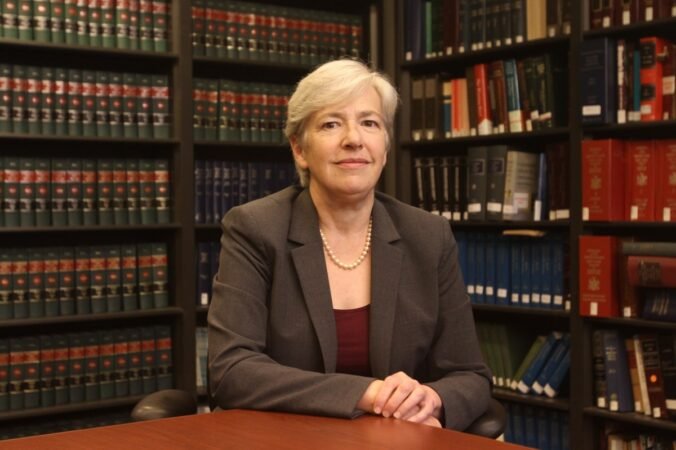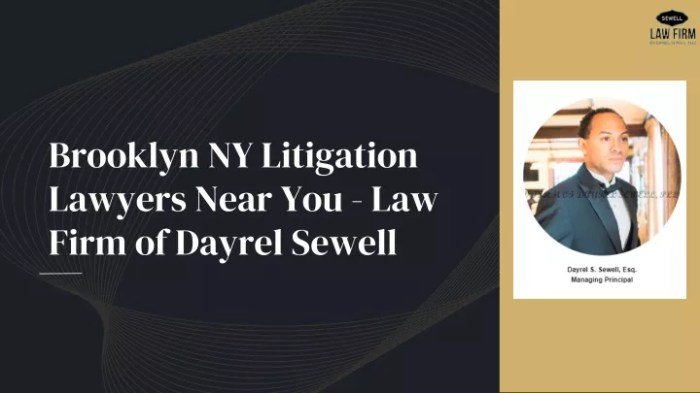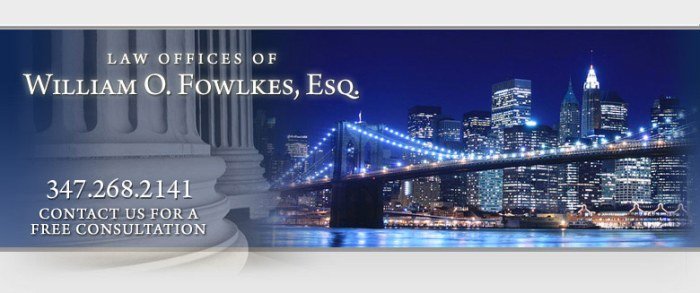
Navigating the complexities of employment law in Brooklyn can be daunting. This guide provides a comprehensive overview of Brooklyn employment law, from understanding your rights as an employee to finding the right legal representation. We’ll explore common disputes, attorney types, and the crucial steps in building a successful client-attorney relationship. Whether you’re facing wrongful termination, wage theft, or discrimination, understanding your options is the first step towards a positive resolution.
We’ll delve into the specifics of Brooklyn’s unique legal landscape, examining the types of attorneys available and the services they offer. We’ll also provide practical advice on finding a qualified attorney who aligns with your needs and budget, highlighting key factors to consider during your search. Finally, we’ll equip you with resources and strategies to effectively manage the legal process and achieve the best possible outcome.
Understanding Brooklyn Employment Law
Brooklyn, a borough known for its diverse workforce and vibrant economy, also presents a unique landscape for employment law. Navigating the complexities of workplace rights and responsibilities requires a thorough understanding of both general New York State employment law and the specific nuances that arise within Brooklyn’s diverse industries and workforce. This involves understanding the prevalence of certain types of employment disputes, the legal avenues for resolution, and the specific challenges faced by employees and employers alike.
Unique Aspects of Brooklyn Employment Law
Brooklyn’s employment law landscape reflects its diverse economic makeup. The borough boasts a significant number of small businesses, non-profit organizations, and large corporations, each presenting different employment scenarios and legal considerations. For instance, the concentration of certain industries, such as healthcare, education, and the arts, influences the types of employment disputes that frequently arise. The high cost of living in Brooklyn can also impact wage and hour disputes, as employees may be more likely to challenge compensation practices. Furthermore, the borough’s significant immigrant population introduces considerations regarding language barriers, cultural differences, and potential discrimination claims.
Common Employment Disputes in Brooklyn
Common employment disputes in Brooklyn mirror those seen throughout New York State but with specific contextual variations. Wage and hour violations, including unpaid overtime, misclassification of employees as independent contractors, and failure to provide legally mandated breaks, are frequently encountered. Discrimination claims based on race, religion, gender, national origin, age, and disability are also prevalent, often reflecting the borough’s diverse population. Wrongful termination cases, including those alleging retaliation for reporting illegal activity or exercising protected rights, are another significant area of concern. Finally, harassment claims, both sexual and otherwise, are unfortunately common occurrences in Brooklyn workplaces.
Legal Processes for Resolving Employment Disputes in Brooklyn
Resolving employment disputes in Brooklyn typically involves several legal processes. Initially, many disputes are addressed through informal methods, such as internal complaint procedures or mediation. If these efforts fail, employees may file a complaint with the New York State Department of Labor (NYSDOL) for wage and hour violations or with the Equal Employment Opportunity Commission (EEOC) for discrimination claims. Alternatively, employees may pursue legal action through the court system, filing a lawsuit to seek remedies such as back pay, damages, and injunctive relief. The specific process will depend on the nature of the dispute, the applicable laws, and the chosen method of dispute resolution. Cases can range from straightforward matters handled through administrative agencies to complex litigation involving extensive discovery and potentially a jury trial.
Finding the Right Brooklyn Employment Law Attorney

Navigating the complexities of employment law can be daunting, especially in a bustling city like Brooklyn. Choosing the right legal representation is crucial for a positive outcome. This section provides a structured approach to finding a suitable attorney who can effectively advocate for your rights.
A Step-by-Step Guide to Finding a Brooklyn Employment Law Attorney
Finding the right attorney involves a systematic process. Begin by identifying your specific legal needs. Are you facing wrongful termination, discrimination, wage disputes, or another employment-related issue? Clearly defining your situation helps narrow your search. Next, utilize online legal directories and search engines, focusing on attorneys specializing in Brooklyn employment law. Check bar association websites for attorney profiles and disciplinary records. Finally, contact several attorneys for consultations to discuss your case and assess their expertise and compatibility.
Criteria for Selecting a Brooklyn Employment Law Attorney
Several key factors should guide your attorney selection. Experience is paramount; look for attorneys with a proven track record in handling cases similar to yours. Fees should be transparent and clearly explained upfront, including hourly rates or contingency arrangements. Specialization in the specific area of employment law relevant to your case (e.g., discrimination, wrongful termination) is essential. Finally, thorough research into client reviews and testimonials can provide valuable insights into an attorney’s reputation and effectiveness.
Comparison of Attorney Selection Factors
| Factor | Experience | Fees | Specialization | Client Reviews |
|---|---|---|---|---|
| Description | Years of practice, case history in relevant areas (e.g., discrimination, wrongful termination) | Hourly rate, contingency fee arrangements, upfront costs, payment plans | Specific areas of employment law expertise (e.g., wage and hour, harassment) | Online reviews, testimonials from past clients, referrals |
| Importance | High – Experienced attorneys possess valuable knowledge and courtroom skills. | High – Transparency and understanding of fee structure are crucial. | High – Specialized expertise ensures focused and effective representation. | High – Client feedback provides insights into an attorney’s communication, responsiveness, and overall performance. |
| How to Assess | Review attorney websites, LinkedIn profiles, and bar association listings. | Request a detailed fee schedule and payment plan options. | Look for specific mentions of expertise in relevant areas on their website and during consultations. | Check online review platforms like Avvo, Yelp, and Google Reviews. Seek referrals from trusted sources. |
| Example | An attorney with 15+ years of experience in employment law and a successful track record in discrimination cases. | An attorney who offers both hourly and contingency fee arrangements with a clear explanation of costs. | An attorney who specifically focuses on wage and hour violations in the construction industry. | An attorney with consistently positive client reviews highlighting their responsiveness, communication skills, and successful case outcomes. |
Client-Attorney Relationship and Communication
Building a strong and effective attorney-client relationship is crucial for a successful outcome in any employment law case. Open communication and mutual understanding are key to navigating the complexities of the legal process and achieving the best possible results. This section will Artikel typical communication methods, attorney responsibilities, and best practices for clients to ensure a productive partnership.
Effective communication between a Brooklyn employment law attorney and their client is essential for a positive outcome. Attorneys employ various methods to maintain consistent contact and ensure clients are well-informed. This fosters trust and allows for a collaborative approach to legal strategy.
Communication Methods Used
Brooklyn employment law attorneys typically utilize a variety of communication methods to stay in touch with their clients. These often include regular phone calls, email correspondence, and in-person meetings. The frequency of communication depends on the specifics of the case and the client’s preferences. Some attorneys also utilize secure client portals for document sharing and updates. This ensures efficient and confidential communication throughout the legal process. For example, a client might receive weekly email updates on the progress of their case, with a scheduled phone call every two weeks to discuss developments and answer questions.
Attorney Responsibilities in Keeping Clients Informed
Attorneys have a professional responsibility to keep their clients informed throughout the legal process. This involves promptly responding to client inquiries, providing regular updates on case progress, and explaining complex legal concepts in a clear and understandable manner. Attorneys should also clearly Artikel the next steps in the process and manage client expectations regarding timelines and potential outcomes. Failure to maintain consistent and transparent communication can damage the attorney-client relationship and potentially harm the client’s case. For instance, an attorney might proactively inform a client of a significant court filing, explaining its implications and answering any questions the client might have.
Best Practices for Clients to Communicate Effectively
Effective communication is a two-way street. Clients should proactively communicate with their attorneys, promptly responding to requests for information and raising any concerns or questions they may have. Clients should also maintain organized records of all communication with their attorney, including emails, phone call notes, and meeting summaries. This helps to ensure a clear and complete record of the case’s progression. Furthermore, clients should be prepared for meetings with their attorney by compiling relevant documents and formulating questions in advance. For example, a client should promptly provide their attorney with any requested documentation and schedule regular check-in calls to discuss the status of their case.
Cost and Fees of Brooklyn Employment Law Attorneys
Understanding the financial aspects of hiring a Brooklyn employment law attorney is crucial for making informed decisions. The cost of legal representation can vary significantly depending on several factors, including the complexity of your case, the attorney’s experience, and the chosen fee structure. This section will clarify different fee arrangements and how to manage associated costs.
Brooklyn employment law attorneys typically utilize several fee structures. The most common are hourly rates, contingency fees, and flat fees. Each approach presents unique cost implications that potential clients should carefully consider.
Hourly Rates
Many attorneys charge by the hour, with rates varying based on experience and specialization. This means you’ll receive a bill for the time spent on your case, including research, drafting documents, court appearances, and client meetings. While providing transparency, this structure can lead to unpredictable costs, especially for complex cases. For example, a highly experienced attorney might charge $500-$800 per hour, while a newer attorney might charge $250-$400 per hour. Accurate time tracking and regular communication with your attorney about the progression of the case are essential to manage expenses under this model.
Contingency Fees
In contingency fee arrangements, the attorney’s fee is a percentage of the recovery obtained. This is common in cases involving wrongful termination, discrimination, or unpaid wages. If the case is unsuccessful, you typically won’t owe any legal fees. However, the percentage taken can be substantial, often ranging from 30% to 40% of the final settlement or judgment. It’s crucial to understand the terms of the contingency agreement, including any costs you’re responsible for regardless of the outcome, such as filing fees or expert witness expenses. For example, a successful $100,000 settlement with a 33% contingency fee would result in a $33,000 attorney fee.
Flat Fees
Some attorneys offer flat fees for specific services, such as drafting a demand letter or representing you at a single mediation session. This structure provides predictable costs upfront, making budgeting easier. However, it’s important to clarify the scope of work included in the flat fee. Any work outside of the defined scope will likely be billed separately at an hourly rate. For instance, a flat fee might cover the preparation of a cease and desist letter, but additional legal work resulting from the letter’s response may require additional fees.
Managing Legal Costs
Regardless of the fee structure, proactive communication with your attorney is key to managing costs. Request regular updates on the case’s progress and the associated expenses. Don’t hesitate to ask questions about billing practices and seek clarification on any unclear charges. Explore payment plans or alternative fee arrangements if needed. Before engaging an attorney, obtain a clear understanding of their fee structure, potential additional costs, and the anticipated timeline for the case. This will allow you to budget effectively and make an informed decision about your legal representation.
Resources for Brooklyn Employees

Navigating employment law can be challenging, but thankfully, numerous resources are available to Brooklyn employees facing workplace issues. These resources offer support, guidance, and assistance in understanding their rights and pursuing legal remedies. This section Artikels key organizations and agencies that can provide valuable help.
Relevant Websites and Organizations
Finding the right information can significantly impact the outcome of an employment dispute. Several websites and organizations offer valuable resources, including legal information, advice, and support services. They provide a range of tools, from self-help guides to referrals to legal professionals.
- New York State Department of Labor (NYSDOL): The NYSDOL website provides comprehensive information on employment laws in New York, including resources for filing wage claims, unemployment benefits, and reporting workplace discrimination. They offer online resources, publications, and contact information for assistance.
- New York City Department of Consumer and Worker Protection (DCWP): The DCWP website focuses on worker rights in New York City, specifically addressing issues like minimum wage, paid sick leave, and workplace harassment. They offer multilingual resources and complaint filing options.
- Equal Employment Opportunity Commission (EEOC): The EEOC is a federal agency that enforces federal laws prohibiting employment discrimination. Their website provides information on filing complaints, understanding your rights, and accessing legal resources. While focused on federal law, it often overlaps with New York State laws.
- Legal Aid Society of New York City: The Legal Aid Society provides free legal services to low-income individuals in New York City, including assistance with employment law matters. Their website details eligibility requirements and contact information for their various offices.
- National Employment Lawyers Association (NELA): While not specific to Brooklyn, NELA’s website offers a directory of employment lawyers across the country. This can be helpful in finding a qualified attorney specializing in employment law, even if they are not based in Brooklyn directly.
Government Agencies and Support Groups
Direct contact with government agencies and support groups can provide personalized assistance and guidance in navigating complex employment issues. These entities often offer confidential consultations and can help employees understand their options.
- New York State Department of Labor (NYSDOL) – Phone: (888) 469-7284. This number connects employees to various departments within the NYSDOL for specific inquiries regarding wages, unemployment, and other employment-related issues.
- New York City Department of Consumer and Worker Protection (DCWP) – Phone: 311 (within NYC) or (212) 312-7999 (outside NYC). The DCWP handles complaints regarding worker rights violations in NYC.
- Equal Employment Opportunity Commission (EEOC) – Website: www.eeoc.gov. The EEOC website contains contact information for regional offices, allowing employees to file complaints and obtain guidance on employment discrimination cases.
Accessing and Utilizing Resources Effectively
Effectively utilizing these resources requires a systematic approach. Begin by identifying the specific issue at hand. Then, research relevant agencies and organizations that address this issue. Contact the appropriate agency or organization directly, gather all necessary documentation, and be prepared to clearly articulate your situation. Remember to maintain accurate records of all communication and interactions. If needed, seek legal counsel from a qualified attorney.
Conclusion

Successfully navigating employment law disputes in Brooklyn requires careful preparation and the right legal guidance. This guide has provided a framework for understanding your rights, identifying potential issues, and selecting the appropriate legal representation. By understanding the nuances of Brooklyn employment law and employing the strategies Artikeld here, you can confidently approach any employment-related challenges and protect your interests effectively. Remember, proactive measures and clear communication with your attorney are vital throughout the process.
Q&A
What is the statute of limitations for filing a wrongful termination lawsuit in Brooklyn?
The statute of limitations varies depending on the specific claim, so it’s crucial to consult with an attorney promptly.
How much does a Brooklyn employment lawyer typically charge?
Fees vary widely based on experience, case complexity, and fee structure (hourly, contingency, etc.). Consult multiple attorneys for fee estimates.
Can I represent myself in an employment law case?
While possible, it’s generally advisable to seek legal counsel due to the complexities of employment law. An attorney can provide expert guidance and increase your chances of a favorable outcome.
What types of evidence should I gather if I believe I’ve been discriminated against?
Gather any documentation related to the alleged discrimination, including emails, performance reviews, and witness statements. Preserve all relevant evidence.


